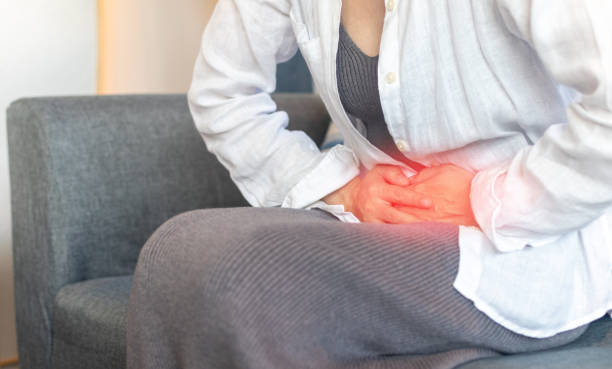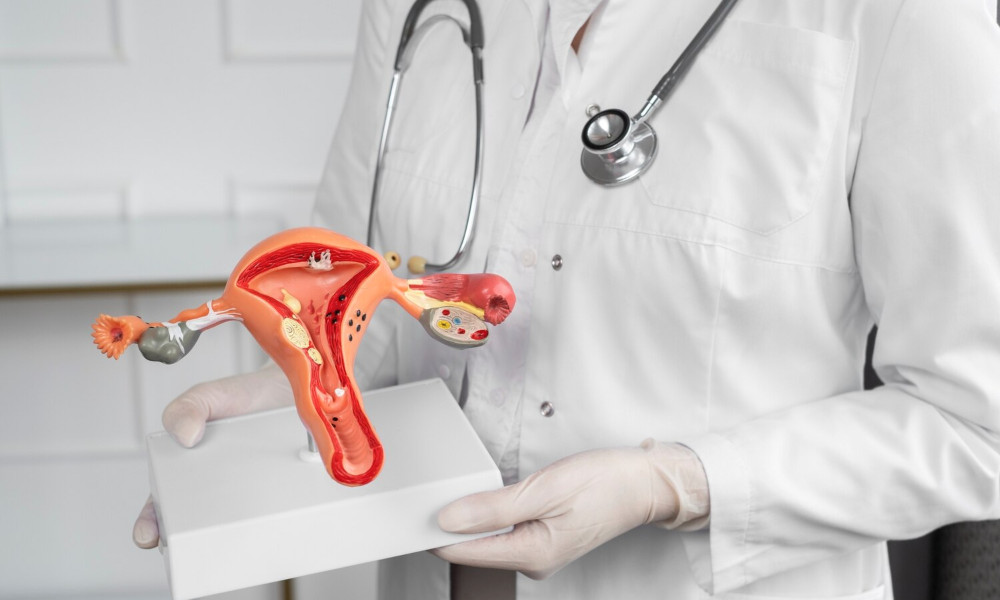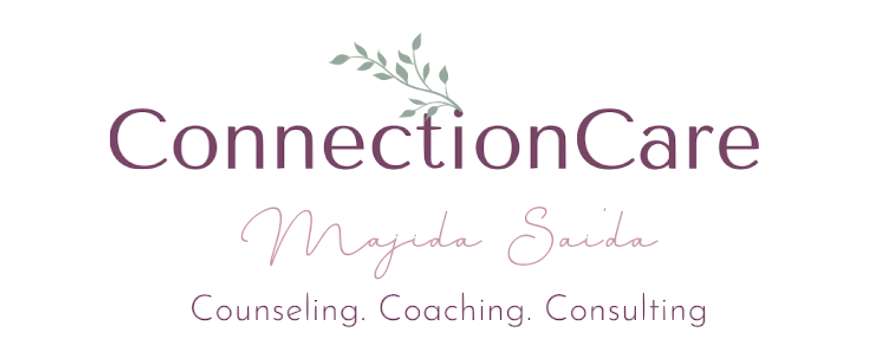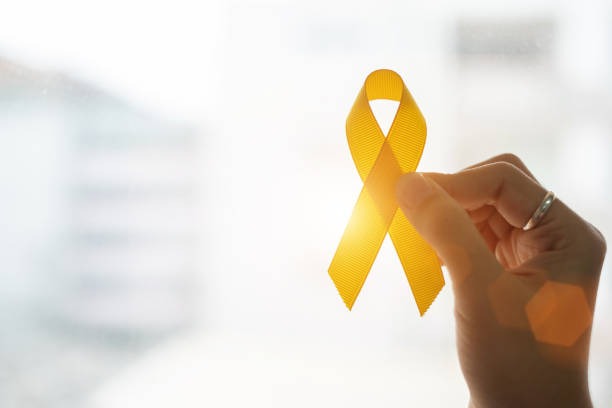Endometriosis is a health condition where tissue that usually lines the uterus grows outside of it. This condition is not restricted to any pelvic organ but can manifest in other organs, like the ovaries or fallopian tubes. Up to 10% of women of reproductive age are affected by this medical condition, which can result in various symptoms, such as pelvic pain, infertility, and heavy periods. Studies have shown that up to 50% of women diagnosed with infertility have endometriosis.
Endometriosis is a critical concern for women’s hormone health and fertility, necessitating attention from both healthcare providers and patients. Properly diagnosing and managing this condition can not only alleviate symptoms but also enhance the likelihood of successful pregnancy outcomes for those trying to conceive.
In this blog post, we will explore the connections between hormone health, endometriosis, and fertility. Additionally, we will discuss available treatment options and investigate natural remedies that may help relieve symptoms.
Symptoms of Endometriosis
Endometriosis can cause significant discomfort, impacting the reproductive system and daily life. Women with endometriosis may experience a range of symptoms, from mild to severe pain, which can interfere with their daily activities.
Here are some common symptoms of Endometriosis:
- Painful periods: Many women with endometriosis experience severe cramps during their menstrual cycle. The level of discomfort can be so intense that it hampers one’s ability to carry out daily tasks and may necessitate medication for relief.
- Chronic pelvic pain: Endometriosis is a potential cause of pelvic pain that isn’t associated with the menstrual cycle. The intensity of this discomfort can vary from slight to intense, and it might be accompanied by other indications such as abdominal swelling, difficulty passing stool, or loose stools.
- Experiencing pain during sexual intercourse is a frequent indication of Endometriosis. The pain may be felt deep within the pelvis and can occur either during or after sex.
- Infertility: Endometriosis can affect fertility by causing inflammation and scarring around the reproductive organs. This can make it difficult for sperm to fertilize an egg or for a fertilized egg to implant in the uterus.
- Fatigue and digestive issues: Many women with endometriosis report feeling tired all the time, even after a whole night’s sleep. Additionally, Endometriosis can cause digestive problems like bloating, diarrhea, or constipation.
If you are experiencing these symptoms, it is advisable to consult with a qualified healthcare provider. This will help you determine the origin of your condition and allow you to investigate potential treatment alternatives.
While symptoms of endometriosis can vary widely, understanding the underlying causes is crucial. In the following section, we will delve into the potential factors that contribute to the development of endometriosis. These include retrograde menstruation, immune system dysfunction, genetic predispositions, and environmental influences.
Causes of Endometriosis

Endometriosis is a significant health issue that affects millions of women globally. This condition occurs when tissue similar to the lining of the uterus begins to grow outside the uterus, commonly on the ovaries, fallopian tubes, and other pelvic organs. Such growth can lead to discomfort, inflammation, and, in some cases, fertility issues. It is a chronic ailment, and both diagnosing and treating it present substantial challenges. As previously mentioned, those affected may experience significant pain and discomfort.
Although the exact cause of endometriosis is not fully understood, several theories have been proposed. One widely discussed theory is retrograde menstruation, where menstrual blood containing endometrial cells flows back through the fallopian tubes into the pelvis. Another theory involves immune system dysfunction, which prevents the body from effectively identifying and eliminating ectopic endometrial cells.
Genetic predisposition is also considered a contributing factor, as having a family history of endometriosis increases a woman’s risk of developing the condition. Environmental factors, such as exposure to certain toxins and chemicals, are also being investigated for their potential links to the development of endometriosis.
Understanding these factors is crucial as it can guide more effective management and treatment strategies for those suffering from endometriosis.
Types of Endometriosis and Their Symptoms
| Type of Endometriosis |
Some Symptoms |
| Superficial Endometriosis |
Mild pain during menstruation |
| Ovarian Endometriosis |
Chronic pelvic pain, painful periods, pain during sex, infertility |
| Deep Infiltrating Endometriosis |
Severe pain during menstruation, chronic pelvic pain, painful sex, infertility |
| Bowel Endometriosis |
Abdominal pain, constipation, diarrhea, painful bowel movements |
| Bladder Endometriosis |
Painful urination, blood in urine, pelvic pain |
| Thoracic Endometriosis |
Chest pain, shortness of breath, coughing, pneumothorax |
It’s important to note that some women may experience symptoms not specific to a particular type of Endometriosis. Conversing with a qualified medical provider is essential if experiencing any of these symptoms. Adding a certified functional hormone specialist to your team may also be supportive in navigating Endometriosis.
Now that we’ve explored the possible causes of Endometriosis, let’s look at how this condition can affect hormone health.
Effects of Endometriosis on Hormone Health
Endometriosis can significantly impact hormone health, leading to a variety of symptoms and complications. One of the most common effects of Endometriosis on hormone health is an increase in estrogen levels. Estrogen greatly influences the menstrual cycle and reproductive health. However, an excess of estrogen can lead to various symptoms, such as breast tenderness, mood swings, and heavy or irregular periods.
Endometriosis can also impact hormone health by disrupting progesterone levels, which play a crucial role in regulating the menstrual cycle and preparing the uterus for pregnancy. Low progesterone levels can lead to irregular periods, heavy bleeding, and difficulties in conceiving, further complicating the challenges associated with endometriosis..
Another way that Endometriosis can impact hormones is by reducing the ratio of LH/FSH (luteinizing hormone/follicle-stimulating hormone). These hormones are essential for ovulation, and when the ratio between the two is disrupted, it can make it difficult for a woman to conceive. In some cases, women with Endometriosis may also experience high levels of prolactin. The hormone commonly linked with breastfeeding can also be increased in some instances of Endometriosis, resulting in irregular menstrual cycles and challenges with conception.
The impacts of Endometriosis on hormone health can have broad consequences. As state before, collaborating with a qualified healthcare provider or functional hormone specialist to address these symptoms effectively and improve fertility outcomes is essential.
As we’ve seen, Endometriosis can significantly affect hormone health, which in turn can impact fertility. In the following section, we will delve deeper into how Endometriosis can impact a woman’s capability to conceive and maintain a pregnancy.
Effects of Endometriosis on Fertility
The presence of Endometriosis can cause fertility issues for women. Various factors may make it challenging for women with Endometriosis to conceive. One of the main effects of Endometriosis on fertility is anovulation, which means that the ovaries are not releasing eggs as they should. Additionally, the scar tissue that can form as a result of the presence of Endometriosis can obstruct the fallopian tubes, causing a challenge for the union of the sperm and egg to occur.
Endometriosis may result in decreased fertility in some instances. Women with Endometriosis may have fewer viable eggs or a reduced ovarian reserve, which can make it more difficult to conceive. Furthermore, Endometriosis can increase the risk of miscarriage, especially if it goes untreated.
While Endometriosis can undoubtedly present challenges for those looking to conceive, it’s important to remember that there is hope. With proper treatment and management, women with Endometriosis can still have successful pregnancies. Working closely with healthcare providers and hormone health specialists who specialize in Endometriosis and fertility is essential to determining the best course of action.
Let’s move on to understanding how to diagnose this condition accurately.
Diagnosis of Endometriosis
It is important to note that diagnosing Endometriosis can be difficult due to its broad range of symptoms and overlap with other conditions. The diagnostic criteria for Endometriosis include symptoms such as painful periods, chronic pelvic pain, pain during sex, and infertility. In the conventional medicine space, laparoscopic surgery is often considered the gold standard for definitive diagnosis. In addition to using laparoscopic surgery, conventional medical doctors may use a variety of tests and assessments to diagnose Endometriosis, including pelvic exams, ultrasounds, and MRIs.
Functional medicine and approaches adopt a more comprehensive approach to identifying Endometriosis. Tests and assessments may include hormone, stool, and food sensitivity testing. When diagnosing, functional medicine practitioners also consider the patient’s overall health and lifestyle factors.
It’s important to note that early diagnosis is critical to important treating Endometriosis. If you believe that you might be having symptoms of Endometriosis, it is recommended that you seek advice from a healthcare expert specializing in diagnosing and treating women’s health and Endometriosis.
Various conventional and functional medicine approaches are available for managing the symptoms of Endometriosis, ranging from pain management to hormone therapy and surgery. In addition, functional nutrition and lifestyle changes can also have a positive impact on managing endometriosis symptoms. Let’s explore some of these options.
Treatment of Endometriosis

Dealing with Endometriosis can prove to be a challenging task, but there are several treatment alternatives that may be considered to mitigate the symptoms. Conventional medicine typically focuses on pain management, hormone therapy, and surgery. Pain management approaches may include nonsteroidal anti-inflammatory drugs (NSAIDs) or other medications to reduce pain and inflammation. Regulating estrogen levels and reducing symptoms are some benefits of hormone therapy. Still, working closely with a qualified healthcare provider to find the proper medication and dosage for your individual needs is important. In more severe cases, surgery may be recommended to eliminate endometrial and scar tissue.
Functional medicine and nutrition approaches to endometriosis treatment focus on identifying and addressing the condition’s root cause. Making necessary adjustments to one’s lifestyle, like managing stress, engaging in physical activities, and modifying dietary habits, may be required to engage a functional approach. Some supplements and herbal remedies may also be beneficial in reducing inflammation and balancing hormone levels. Research has shown that endometriosis-related pain and inflammation can be supported by omega-3 fatty acids, for example. Menstrual cramps may be eased with the intake of magnesium. Herbal remedies like turmeric and ginger are believed to have anti-inflammatory properties.
Functional medicine approaches require patience and dedication to yield results and can effectively complement conventional treatments. Having an experienced healthcare provider who comprehends the fundamental principles of functional medicine or is willing to engage the support of a functional practitioner may assist in developing a thorough treatment plan to aid in managing Endometriosis.
Now that we’ve discussed various approaches to treating Endometriosis let’s dive into the benefits of fertility awareness and how it can complement conventional and natural interventions.
Endometriosis & Fertility Awareness
Fertility awareness is a powerful tool for women with Endometriosis who are trying to conceive. Women can optimize their chances of natural pregnancy by comprehending the menstrual cycle, monitoring ovulation, and becoming familiar with the subtle indications of fertility. Fertility awareness can also help women identify potential hormonal imbalances or other issues that may be impacting their fertility.
For women with endometriosis, fertility awareness can be extremely beneficial. Given that endometriosis can disrupt the menstrual cycle and complicate the prediction of ovulation, tracking fertility signs can help women pinpoint their fertile window and optimize the timing for intercourse. Additionally, fertility awareness can assist in identifying potential hormonal imbalances or other issues affecting fertility, thereby informing more targeted treatment plans.
Working with a certified fertility awareness educator can also be helpful for women with Endometriosis. These educators can provide personalized support and guidance, helping women navigate the challenges of tracking fertility signs with Endometriosis and addressing any potential issues that may arise. By incorporating fertility awareness into their treatment plan, women with Endometriosis can take an active role in their fertility journey and optimize their chances of conceiving.
Top 10 benefits of working with a fertility awareness educator for Endometriosis
- Learn to Track & Interpret Your Menstrual Cycle: Enhance your ability to manage endometriosis symptoms by understanding your menstrual cycle better.
- Understand Your Hormonal Health: Deepen your knowledge of how hormones affect your overall well-being.
- Receive Personalized Support: Benefit from the guidance of a trained educator who specializes in endometriosis.
- Access Non-Hormonal Contraception Methods: Explore effective options for contraception and family planning that don’t rely on hormones.
- Identify & Address Imbalances: Detect underlying issues that may be affecting your fertility and take steps to improve your chances of conception.
- Enhance Healthcare Communication: Improve discussions with your healthcare provider by being informed about your cycle and symptoms.
- Connect with Your Body: Develop a deeper understanding of your body’s natural rhythms.
- Improve Reproductive Health: Take proactive steps to enhance your overall reproductive and gynecological health.
- Empower Yourself: Gain greater control and empowerment over your health decisions.
- Join a Supportive Community: Connect with others who are also managing endometriosis, providing mutual support and shared experiences.
By using fertility awareness as a tool to understand better their bodies, women with Endometriosis can take charge of their hormone health and fertility. In addition, a functional nutrition approach can further support this process by addressing underlying imbalances and nourishing the body. In the next section, we’ll explore how functional nutrition can help women with Endometriosis manage their symptoms and improve their overall health.
Endometriosis & Functional Nutrition
Functional nutrition can be helpful for those suffering from Endometriosis as it focuses on identifying and addressing the root causes of the disease instead of only masking the symptoms. This method allows one to effectively manage the condition and see improvements in their health. By incorporating functional nutrition into your treatment plan, you may be able to improve your hormone health, reduce inflammation, and relieve your endometriosis symptoms.
Endometriosis is a complex condition that involves several factors, including hormonal imbalances, inflammation, and immune dysfunction. Functional nutrition addresses all these factors to help alleviate symptoms and improve overall health. By working with a functional nutrition and hormone health specialist, you can receive a personalized plan that addresses your unique needs and goals.
A functional nutrition approach to Endometriosis may include
- Addressing Nutrient Deficiencies: Identify and correct deficiencies that contribute to inflammation and hormonal imbalances.
- Adopting an Anti-inflammatory Diet: Focus on whole foods, healthy fats, and ample fiber to reduce inflammation and support hormonal balance.
- Supporting Liver Health: Since the liver plays a critical role in hormone metabolism and detoxification, maintaining its health is essential.
- Maintaining Gut Health: The gut is pivotal in balancing hormones and overall health. Ensuring a healthy gut microbiome helps stabilize hormone levels and promotes overall well-being.
- Personalized Supplementation: To improve hormone health and reduce inflammation, incorporating supplements such as omega-3 fatty acids, magnesium, and vitamin D can be beneficial.
Navigating the complex world of nutrition and hormone health alone can be overwhelming. By working with a functional nutrition and hormone health specialist, you can receive personalized guidance and support to help you achieve your goals. With the assistance of a specialist, you can identify the root causes of your Endometriosis and develop a customized plan to improve your overall health and well-being.
Incorporating functional nutrition into your treatment plan for Endometriosis can be a valuable tool for improving your hormone health, reducing inflammation, and relieving your symptoms. By working with a functional nutrition and hormone health specialist, you can receive personalized guidance and support to help you achieve your goals and improve your overall health.
Top 10 benefits of working with a functional nutrition and hormone health specialist for Endometriosis
- Personalized Nutrition Plan: Receive a tailored nutrition plan designed specifically to manage your endometriosis symptoms, created by a specialist knowledgeable about your condition.
- Identification of Food Sensitivities: Learn about any food sensitivities that may be exacerbating your symptoms, with guidance on suitable substitutions.
- Hormonal Balance Support: Specialists can identify hormonal imbalances and restore balance using dietary adjustments and targeted supplements.
- Inflammation Reduction: Receive expert advice on anti-inflammatory foods and supplements to help mitigate inflammation related to endometriosis.
- Improved Gut Health: Enhancing gut wellness is crucial for overall well-being and managing endometriosis symptoms. A specialist can provide strategies to improve gut health.
- Fertility Support: Gain support in optimizing your fertility, potentially improving your chances of conception.
- Reducing Reliance on Medications: Improve your overall health naturally, which may reduce your dependence on pain medications and hormone therapies.
- Effective Symptom Management: Receive guidance on managing endometriosis symptoms through specific dietary changes and supplementation.
- Enhanced Quality of Life: Work with a specialist to reduce symptoms and improve your overall health, enhancing your quality of life.
- Long-term Support: Benefit from ongoing support to help manage symptoms of endometriosis and promote sustained health and wellness.
By working with a functional nutrition and hormone health specialist, women with Endometriosis can explore natural remedies that may help manage their symptoms. The following section will discuss some of the top supplements and herbal remedies that may benefit those with Endometriosis.
Natural Remedies for Endometriosis

Many people are turning to natural remedies to support in managing endometriosis symptoms. While conventional approaches such as pain management, hormone therapy, and surgery may provide relief, they may often come with side effects. Natural remedies can offer a gentler, more holistic approach to managing endometriosis symptoms. In this section, we’ll explore some of the natural remedies that are effective in managing Endometriosis.
- Vitamin D: This essential vitamin regulates the immune system and reduces inflammation. Research has indicated that individuals who suffer from Endometriosis, particularly women, may have insufficient levels of vitamin D. Therefore, incorporating vitamin D supplements in their diet may help alleviate inflammation and pain.
- Omega-3 fatty acids: Healthy fats are recognized for their capability to decrease pain and inflammation in women with Endometriosis due to their anti-inflammatory properties. Fatty fish like salmon and tuna or supplements are both sources of Omega-3s.
- Magnesium: Magnesium is a mineral necessary for proper muscle and nerve function. It can also reduce the pain and cramping that typically accompany Endometriosis. Including dark leafy greens, nuts, and whole grains in your diet can be an excellent way to obtain magnesium. Consuming these foods regularly may help you fulfill your daily requirement of magnesium. Magnesium is an essential nutrient vital in several bodily functions and processes, contributing to overall health and wellness. Additionally, magnesium supplements are also available.
- Turmeric: Curcumin, an active ingredient found in the spice, has potent anti-inflammatory properties that can aid in reducing inflammation and pain linked to Endometriosis, according to research studies.
- Ginger: People have used this plant’s root for hundreds of years as a natural anti-inflammatory and painkiller. Ginger can be ingested as a tea, included in dishes, or used as a supplement.
- Chamomile: This herb has been used for centuries to reduce inflammation and calm the nervous system. It can be consumed as a tea or taken as a supplement.
Always consult with a qualified healthcare professional before including any new supplement or herbal remedy into your routine, especially if you are taking medication or have a medical condition.
Key Points & Conclusion
By exploring natural remedies for Endometriosis, we have highlighted the critical role of functional nutrition and hormone health in managing endometriosis symptoms. Let’s look at an overview of the key topics covered in this article.
Key Points
- The tissue that is supposed to line the inside of the uterus grows outside of it in a condition called Endometriosis.
- Painful periods, chronic pelvic pain, pain during sex, infertility, and fatigue/digestive issues are all indicative of Endometriosis symptoms.
- The causes of Endometriosis may include retrograde menstruation, immune system dysfunction, genetic factors, and environmental factors.
- Endometriosis can disrupt hormone levels, resulting in increased estrogen, imbalanced progesterone, and reduced LH/FSH ratios.
- Endometriosis can also reduce fertility, increase the risk of miscarriage, and cause anovulation.
- The identification of Endometriosis usually requires a combination of diagnostic criteria, tests, and evaluations.
- Conventional treatments for Endometriosis include pain management, hormone therapy, and surgery.
- Functional nutrition and lifestyle changes can also play a role in managing endometriosis symptoms and improving hormone health.
- Fertility awareness and working with a fertility awareness educator can help women with Endometriosis better understand their menstrual cycle and improve fertility.
- Collaborating with a specialist in functional nutrition and hormone health can offer individualized assistance and encouragement for coping with Endometriosis through the use of specific foods and supplements.
- Natural remedies such as supplements (vitamin D, omega-3 fatty acids, magnesium) and herbal remedies (turmeric, ginger, chamomile) may also help manage endometriosis symptoms.
- It’s essential to prioritize hormone health and fertility in managing Endometriosis that may include a combination of conventional and natural interventions.
Conclusion
Endometriosis is a condition that can affect women’s hormone health and fertility in complex ways. It is a challenging condition that can have a significant impact on these areas. To conclude, this condition is complex and can cause major effects on women’s hormone health and fertility. Individuals must prioritize their overall health and well-being when living with Endometriosis.
Methods like pain management, hormone therapy, and surgery that follow traditional approaches can prove to be useful in controlling symptoms. Still, functional approaches such as lifestyle changes, supplements, and herbal remedies can also play an essential role in addressing endometriosis symptoms and supporting overall health.
Additionally, working with a fertility awareness educator or functional nutrition and hormone health specialist can provide personalized support and guidance for managing Endometriosis and improving overall health and fertility outcomes. Individuals with Endometriosis can enhance their quality of life by taking charge of their health through a comprehensive approach that combines conventional and natural interventions.
About Majida

Sources
- Bailleul, A., Niro, J., Du Cheyron, J., Panel, P., & Fauconnier, A. (2021). Infertility management according to the endometriosis fertility index in patients operated for endometriosis: What is the optimal time frame? PLOS ONE, 16(5). https://doi.org/10.1371/journal.pone.0251372
- Barnard, N. D., Holtz, D. N., Schmidt, N., Kolipaka, S., Hata, E., Sutton, M., Znayenko-Miller, T., Hazen, N. D., Cobb, C., & Kahleova, H. (2023). Nutrition in the prevention and treatment of endometriosis: A Review. Frontiers in Nutrition, 10. https://doi.org/10.3389/fnut.2023.1089891
- Grey, A., & Bold, J. (2023). Integrated care for endometriosis: A qualitative study investigating nutrition and lifestyle factors. International Journal of Integrated Care, 23(S1), 194. https://doi.org/10.5334/ijic.icic23392
- Horne, A. W., & Missmer, S. A. (2022). Pathophysiology, diagnosis, and management of endometriosis. BMJ. https://doi.org/10.1136/bmj-2022-070750
- Li, B., Zhang, Y., Zhang, L., & Zhang, L. (2023). Association between endometriosis and metabolic syndrome: A cross-sectional study based on the National Health and Nutrition Examination Survey Data. Gynecological Endocrinology, 39(1). https://doi.org/10.1080/09513590.2023.2254844
- Maheux-Lacroix, S., Nesbitt-Hawes, E., Deans, R., Won, H., Budden, A., Adamson, D., & Abbott, J. A. (2017). Endometriosis fertility index predicts live births following surgical resection of moderate and severe endometriosis. Human Reproduction, 32(11), 2243–2249. https://doi.org/10.1093/humrep/dex291
- Mills, D. S., & Vernon, M. (2002). Endometriosis: A key to healing through nutrition. Thorsons.
- Morris, K.-A. (2006). Living well with endometriosis: What your doctor doesn’t tell you– that you need to know. HarperCollins Publishers.
- Norton, H. (2012). Take control of your endometriosis: Help relieve symptoms with simple diet and lifestyle changes. Kyle Books.
- Seckin, T. (2016). The doctor will see you now: Recognizing and treating endometriosis. Turner.
- Zondervan, K. T., Becker, C. M., & Missmer, S. A. (2020). Endometriosis. New England Journal of Medicine, 382(13), 1244–1256. https://doi.org/10.1056/nejmra1810764
Disclaimer:
The information provided on this blog is for educational and informational purposes only and is not intended as a substitute for professional medical advice, diagnosis, or treatment. Always seek the advice of your physician or other qualified health provider with any questions you may have regarding a medical condition. The content on this blog is not meant to replace professional medical advice or to be used to prevent, diagnose, or treat any disease or illness. Reliance on any information provided by this blog is solely at your own risk.












